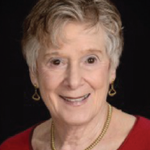
Pormezz / shutterstock.com
Bad things happen to good rheumatologists—and to their patients—and can have profound personal and professional consequences for the doctor. Sometimes recommended treatments can have predictable, but devastating, side effects. Even if the rheumatologist does everything right according to evidence-based best practice, patients can still have bad outcomes, even die—with resulting feelings of sadness, anger, guilt and grief for the doctor. Nor are rheumatologists immune to medical errors, which are rampant in the healthcare system.
In a session titled Death and Devastation: The Effect on Care Providers, presented at the 2017 ACR/ARHP Annual Meeting in San Diego, psychologist Marian R. Stuart, PhD, of Rutgers-Robert Wood Johnson Medical School in New Jersey, led participants through an interactive exploration of grief, guilt and forgiveness. Dr. Stuart is a clinical psychologist working in primary care and family medicine, and coauthor of The Fifteen Minute Hour, a book written to help primary care physicians address patients’ psychosocial concerns by incorporating therapeutic talk into routine practice.1
“My focus has been on trying to get doctors to process their feelings after a patient has died,” Dr. Stuart tells The Rheumatologist. “Younger doctors are willing, but older doctors are more resistant. It sometimes feels to them like opening a can of worms. But when I get their attention, such as at the ACR session, the response is amazing. Processing what happened is the way to get people in touch with their feelings and deal with them.

Dr. Stuart
“My whole emphasis is on giving doctors the tools to explore what happened, process it and then give themselves compassion to achieve self-forgiveness,” Dr. Stuart continues. “When doctors are able to process their own feelings, they can have more sense of connection with their patients and their experience—without getting burned out or sucked in. Instead, they can have meaningful interactions with patients that can be rewarding professionally. And that’s how you achieve a more satisfying career.”
These are not simple issues, and doctors don’t talk about them enough, says Leonard Sigal, MD, FACP, FACR, a rheumatologist and founder of Gateway Immunosciences LLC, in Stockbridge, Mass. He moderated Dr. Stuart’s ACR workshop. “But they need to be spoken about. Otherwise, you can walk through life carrying a heavy burden. Look at the diseases we treat in rheumatology, and the potential bad outcomes. Yes, research is being done, and treatments are getting better. But it doesn’t always work out the way we’d hope,” he says.


